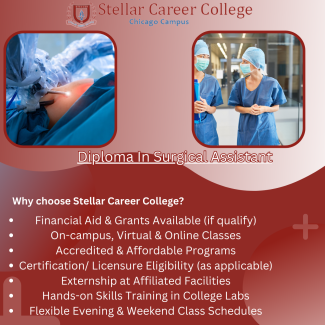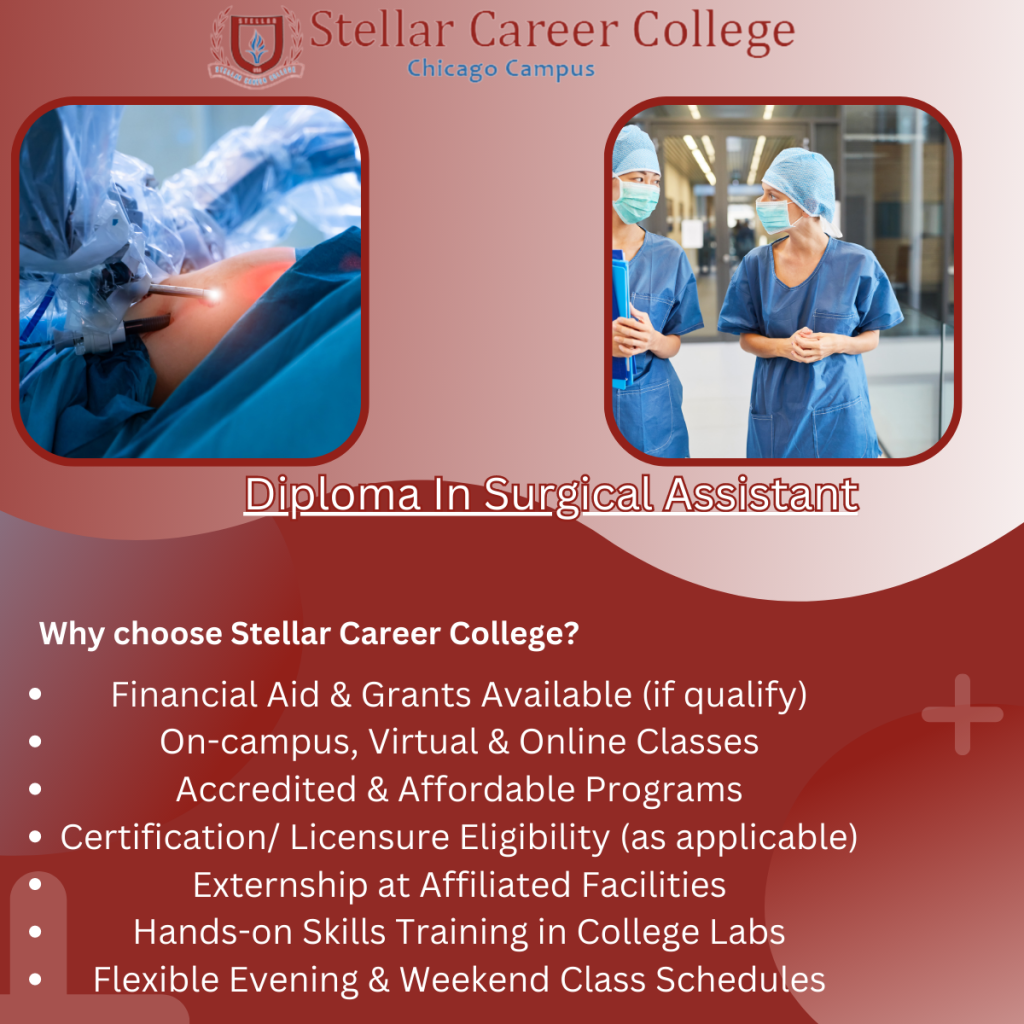
Discover the benefits of enrolling in a surgical assistant program at a reputable college. Gain valuable skills and knowledge to pursue a rewarding career in the medical field. Explore our comprehensive guide to find out more.
Are you passionate about medicine and eager to make a difference in the field of surgery? Becoming a surgical assistant might be the perfect career path for you. A surgical assistant is a vital member of the operating room team, providing support to surgeons and ensuring smooth surgical procedures. If you’re looking for a high-quality education and training in this field, attending a reputable college is essential. In this article, we will delve into the benefits of enrolling in a surgical assistant program at a stellar college and provide you with an in-depth guide to help you make an informed decision.
- Understanding the Role of a Surgical Assistant
- Benefits of Enrolling in a Surgical Assistant Program
- Selecting the Right College for Your Education
- Curriculum and Course Structure
- Hands-on Training and Clinical Experience
- Internship and Job Placement Opportunities
- Accreditation and Program Recognition
- Financial Aid and Scholarships
- Career Prospects and Salary Expectations
- Testimonials and Success Stories
Please note that the numbering column has been removed for better readability.
Understanding the Role of a Surgical Assistant
As a surgical assistant, you will work closely with surgeons, nurses, and other healthcare professionals to ensure the successful completion of surgical procedures. In this section, we will explore the responsibilities, skills, and qualifications required to excel in this role. We will also highlight the significance of a surgical assistant’s contribution to the surgical team.
Benefits of Enrolling in a Surgical Assistant Program
Embarking on a surgical assistant program offers numerous advantages for aspiring medical professionals. This section will discuss the benefits of acquiring formal education and training through a reputable college. From comprehensive theoretical knowledge to practical skills development, we will outline why pursuing a program is essential for your career prospects.
Selecting the Right College for Your Education
Choosing the right college is a crucial decision that can greatly impact your educational journey. In this section, we will provide you with guidance on factors to consider when selecting a college for your surgical assistant program. From accreditation and faculty expertise to resources and facilities, we will help you make an informed choice.
Curriculum and Course Structure
To become a competent surgical assistant, you need a well-structured curriculum that covers the essential subjects and skills. In this section, we will outline the typical curriculum and course structure of a surgical assistant program. You will gain insights into the topics covered, such as anatomy, physiology, surgical procedures, and sterile techniques.
Hands-on Training and Clinical Experience
Practical training and clinical experience are vital components of a surgical assistant program. This section will discuss the importance of hands-on training and how it prepares you for real-world scenarios in the operating room. We will explore the types of training opportunities available and how they enhance your skill set.
Internship and Job Placement Opportunities
Securing an internship and job placement after completing your surgical assistant program is a significant milestone in your career journey. This section will delve into the internship and job placement opportunities offered by reputable colleges. We will provide insights into the support provided by colleges in finding suitable placements and how these opportunities can kickstart your career.
Accreditation and Program Recognition
When choosing a surgical assistant program, it is crucial to ensure that the college and program have proper accreditation and recognition. In this section, we will explore the importance of accreditation and how it guarantees the quality and credibility of the education you receive. We will also discuss program recognition by professional organizations and its impact on your career prospects.
Financial Aid and Scholarships
Financing your education can be a significant concern for many students. This section will provide information on financial aid options and scholarships available for surgical assistant programs. We will discuss various sources of funding, including grants, loans, and scholarships, and provide tips on how to navigate the financial aspect of your education.
Career Prospects and Salary Expectations
One of the key considerations when choosing a career path is the job outlook and earning potential. In this section, we will delve into the career prospects for surgical assistants and the expected salary range. We will explore the demand for surgical assistants in the healthcare industry and discuss factors that can influence your earning potential.
Testimonials and Success Stories
Hearing from individuals who have completed a surgical assistant program can provide valuable insights into the benefits and experiences of such education. In this section, we will feature testimonials and success stories from graduates of surgical assistant programs. Their firsthand accounts will give you a glimpse into the real-life impact of pursuing this career path.
- Surgical assistant program
- Surgical assistant education
- Reputable college for surgical assistant
- Career prospects for surgical assistants
- Surgical assistant salary
- Accredited surgical assistant program
- Hands-on training for surgical assistants
- Surgical assistant job placement
- Financial aid for surgical assistant program
- Testimonials from surgical assistant graduates
FAQ
- Q: What is the duration of a surgical assistant program? A: The duration of a surgical assistant program can vary, but it typically ranges from 9 months to 2 years, depending on the level of education and the program structure.
- Q: What are the admission requirements for a surgical assistant program? A: Admission requirements may vary among colleges, but they often include a high school diploma or equivalent, completion of prerequisite courses, and submission of application materials such as transcripts and recommendation letters.
- Q: Can I work as a surgical assistant without completing a formal program? A: While it is possible to work as a surgical assistant without formal education, completing a surgical assistant program provides you with comprehensive knowledge, practical skills, and better job prospects.
- Q: Are surgical assistants different from surgical technologists? A: Yes, surgical assistants and surgical technologists have distinct roles. Surgical assistants work more directly with surgeons, providing hands-on support during procedures, while surgical technologists focus on preparing the operating room and handling instruments.
- Q: Are there opportunities for advancement in the field of surgical assisting? A: Yes, with experience and further education, surgical assistants can advance their careers by specializing in specific surgical specialties, pursuing higher-level positions, or even transitioning into roles such as surgical first assistant.
- Q: Are surgical assistant programs available online? A: Some colleges offer online or hybrid formats for surgical assistant programs, allowing flexibility for students who may have other commitments or prefer remote learning. However, practical components may require in-person attendance.
- Q: Can I become a surgical assistant with a nursing background? A: While a nursing background can provide a solid foundation, specific education and training in surgical assisting are typically required to become a surgical assistant. Some nursing skills may overlap, but additional knowledge is necessary.
- Q: What skills are essential for a surgical assistant? A: Important skills for surgical assistants include strong communication, attention to detail, dexterity, problem-solving abilities, and the ability to work well under pressure in a fast-paced environment.
- Q: Are there opportunities for continuing education in the field of surgical assisting? A: Yes, continuing education and professional development opportunities are available for surgical assistants, allowing them to expand their knowledge, acquire new skills

